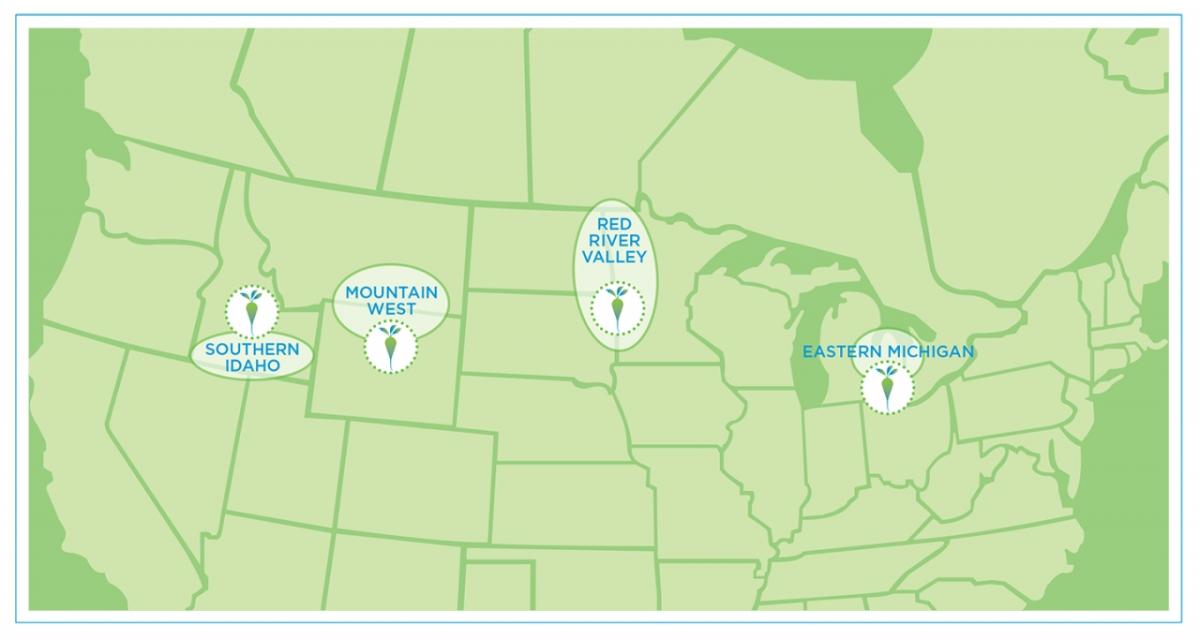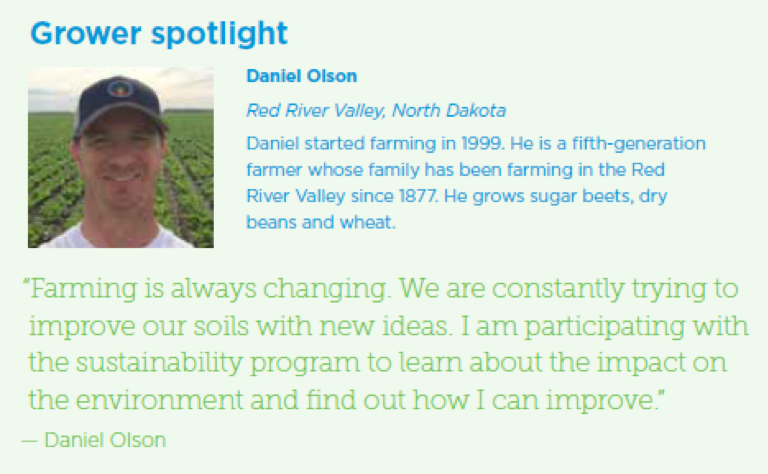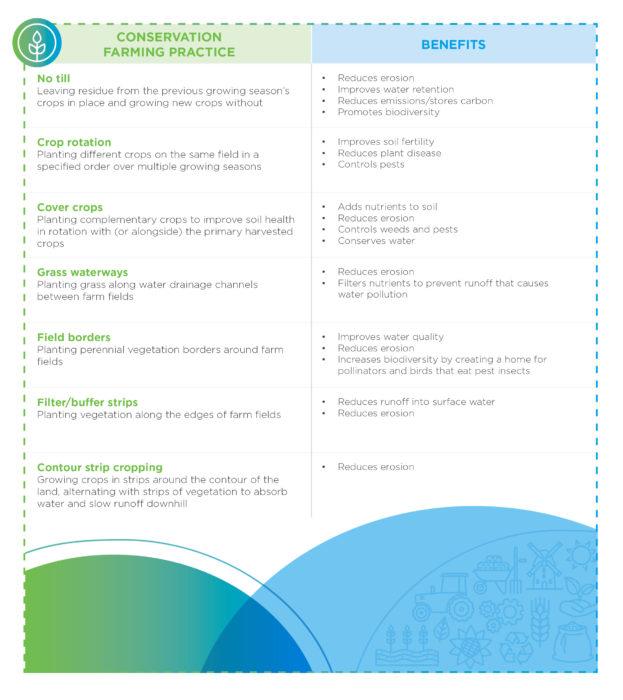Working Toward Sustainably Grown Sugar
Working Toward Sustainably Grown Sugar
Editor’s note: This is the fifth story in a series focusing on our commitment to sustainably source our top ten priority ingredients used in General Mills products. Read the first four pieces, which highlight our progress with oats, wheat, corn and cocoa.
The sugar that provides a sweet taste in your food can come from a variety of sources. General Mills uses sugar from sugarcane in some of our dough products and snack bars, for example, and from sugar beets in cereal, fruit snacks, baking mixes and frosting.
You can’t taste or see the difference – they both satisfy your sweet tooth and look the same – but we’re working to make sure both ingredients are grown in an environmentally and socially sustainable manner. Sustainably sourcing the ingredients we use is a priority for General Mills.
We know consumers are increasingly interested not only in where their food comes from but how it is grown and by whom. We share consumers’ desire for transparency about what goes into our products. Further, ‘Treat the World with Care” and “Put People First” are in our DNA.
For Sourcing, this translates into an imperative to create supply chain resiliency and enable growth – we need to protect and conserve the raw material base our businesses depend on.
For these reasons, we made a commitment in 2014 to sustainably source our top ten priority ingredients by 2020.

Today, we sustainably source 81 percent of the U.S. beet sugar and 58 percent of the sugarcane we purchase and are on track to meet our goal of 100 percent by the end of 2020 (calendar year).
They both end up as the same ingredient (sugar), but as raw materials, sugar beets and sugarcane come from different places with different risks and opportunities. Most of the beet sugar we use is grown in the central and northern U.S., while much of the sugarcane we purchase is sourced from warmer climates.
Sugar beets
Like other row crops, growing sugar beets can be resource intensive. Use of more environmentally friendly farming practices while growing them – such as no till, crop rotation and cover crops – helps improve soil health while reducing greenhouse gas (GHG) emissions that contribute to climate change. Those practices also improve water quality by lessening the amount of fertilizer and other nutrients that can end up in the water supply.
We work with sugar beet farmers in four U.S. growing regions to help them measure the impact of sustainable practices and identify improvement opportunities so they can grow more with less fertilizer, water, energy and soil erosion. Farmers measure their progress by capturing and comparing data with software tools that help them determine the most efficient use of resources.

The Red River Valley region of the U.S. was the starting point for our work with sugar beet farmers. We have been collaborating with farmers from the region and American Crystal Sugar, one of our co-op suppliers, for five years. To date, farmers have collected data on more than 119,000 acres using on-the-ground sustainability programs to measure environmental efficiency indicators.
Nearly 80 percent of sugar beet fields in the Red River Valley grower engagement program have implemented some combination of conservation practices, such as cover crops, grass waterways, filter strips, field borders and contour strip cropping. These practices are helping improve the sustainability of beet sugar.
Conservation farming practices
Sugarcane
Our actions to improve the sustainability of sugarcane are different from sugar beets because the global sugarcane supply chain is more complex. It presents a broader mix of challenges, including labor rights, working conditions and water quality issues.
We are helping to increase the sustainability of sugarcane by working with our suppliers and industry groups like Bonsucro, a global nonprofit organization that promotes sustainable sugarcane production, to improve practices. We source raw cane sugar from more than 20 countries.
Most of the sugarcane General Mills purchases comes from refineries in the U.S., Mexico and Brazil. More than half of the sugarcane we purchase globally is verified as sustainably sourced from countries where there is a low-risk of issues, including the U.S. and Australia.
“General Mills is a longstanding member of Bonsucro, having joined in 2013, and we’re very happy to be working with the company to achieve their aim of sourcing 100 percent of their sugarcane products from responsible and sustainable sources by 2020. As a multi-stakeholder initiative, Bonsucro works with businesses from all areas of the sugarcane supply chain, including producers, traders, civil society organisations and end buyers of sugarcane products. Collaboration between these different actors is the key to achieving a sustainable sugarcane industry, and so General Mills’ support through membership and promotion of Bonsucro’s Standards and programmes to its supply base contributes to achieving Bonsucro’s vision of a sugarcane sector with thriving, sustainable producer communities and resilient, assured supply chains.” – Danielle Morley, CEO, Bonsucro
To map our supply chain, achieve greater transparency and tailor strategies around sugarcane origin, we have been working with Proforest, a nonprofit group which consults with governments, producers and other stakeholders to improve sustainable management of natural resources.
In countries where the potential for supply chain challenges is considered higher, we use verification methods such as compliance with Bonsucro’s Production Standard, a protocol that helps farmers and mills better track and verify practices, to ensure we are purchasing sugarcane that has been grown in a sustainable and responsible manner. Where the path to verification is less clear, we are working with Bonsucro and Proforest to determine how and where we should make impact investments to address social sustainability challenges, such as worker health and safety.
“Proforest has been working with General Mills on their 2020 sustainable sourcing strategy and target for sugarcane since 2016. The primary focus of this work has been to support the company in understanding its sugar supply base through the collection of supplier traceability data – work which has progressed well through 2017 and 2018. Moving forward, Proforest is encouraged that General Mills has asked us to work with them to now convert this traceability data into meaningful actions to engage suppliers in higher risk sourcing regions. We will also be supporting them as they work towards achieving their 2020 goal more broadly.” – Rob Bailes, senior consultant, Proforest
Transformation
Whether we are working with sugar beet farmers in Idaho or sugarcane farmers in Brazil, our commitment to improving the sustainability of sugar remains the same.

We have made solid progress in helping to transform on-farm practices so far and will continue this important work to ensure the sugar we use in our products meets our high expectations – and of the consumers who enjoy our food.
Photography courtesy of the Western Sugar Cooperative.






